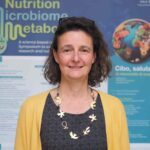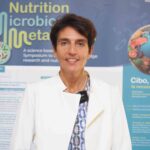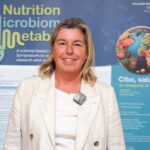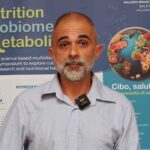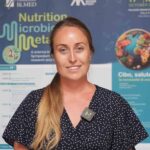During the Ri.MED Symposium 2024, held recently in Palermo (Italy) Microbiomepost conducted an exclusive interview with Clara Delaroque, from Institut Pasteur (France) on the impact of maternal diet, particularly the consumption of food additives, on the early-life microbiota of offspring and its long-term health consequences.
Early life is a critical period for the development of both the microbiota and the immune system. This study explored how maternal diet, specifically the use of common food additives, impacts the microbiota of offspring and their susceptibility to diseases later in life. Using a mouse model, mothers were treated with additives such as carboxymethylcellulose (CMC) and polysorbate-80 (P80) to perturb their microbiota. These alterations were transmitted to their offspring, affecting the early-life microbiota despite the offspring never being directly exposed to the additives.
This disturbance led to increased susceptibility to obesity and colitis in the offspring due to disrupted antigen exchange in the colon mediated by goblet cells. Pharmacological restoration of goblet cell function effectively prevented these outcomes, emphasizing the critical interplay between early-life microbiota and host health. While the two additives affected different microbial species, both resulted in similar long-term health impacts, suggesting that microbiota community disruption rather than specific bacterial changes drives inflammation and disease susceptibility. This research highlights the significant influence of maternal diet on the intergenerational transmission of health risks via microbiota modulation.









